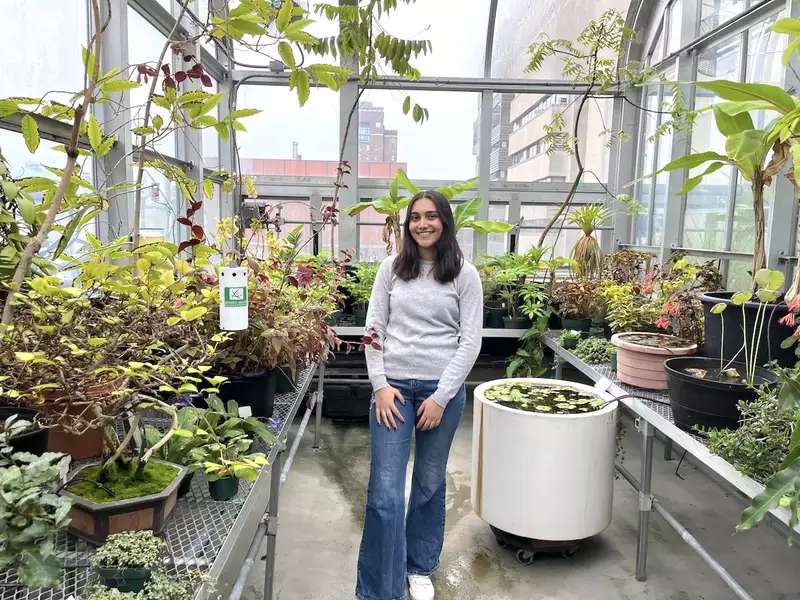[page-element:slideshow]
 The week before Mother’s Day (May 13), Nara Milanich, professor of history, returned to the CARA Family Detention Pro Bono Project in Dilley, Texas, where she has volunteered over the past two years. At CARA, Milanich helps provide legal counsel to women and children refugees and has also served as an expert witness and interpreter in political asylum cases.
The week before Mother’s Day (May 13), Nara Milanich, professor of history, returned to the CARA Family Detention Pro Bono Project in Dilley, Texas, where she has volunteered over the past two years. At CARA, Milanich helps provide legal counsel to women and children refugees and has also served as an expert witness and interpreter in political asylum cases.
Next spring, Milanich will teach a seminar on Refugees, Incarceration, and Asylum that will explore the historical roots of the Central American refugee crisis and the politics of asylum. Students will spend a week working at the detention facility in Texas and will carry out a data analysis project for CARA designed to improve its legal services. The course is part of a larger experiential learning program, the Public Engagement Initiative, overseen by Professor Milanich, Associate Professor of History and Africana Studies Abosede George, and Professor of History Premilla Nadasen. Nadasen’s course Mississippi Semester—a faculty-student research project that explored how historical, political, economic, and social issues affect communities in Mississippi—took place this past semester; participants issued a final report on their activities.
Milanich has witnessed the struggles refugee mothers face to keep their families safe in their home countries and in the United States. She has written for news outlets and academic journals on maternity and family. In this special Mother’s Day edition of “Break This Down,” Milanich shines a light on the government’s practice of incarcerating refugee mothers and children and the experiences of the women themselves.
How will you celebrate Mother's Day this year?
I hadn’t realized when I made plans to return to Dilley that the trip would fall the week before Mother’s Day, but the timing is very appropriate. If you can imagine a dystopian movie about Mother’s Day, it would be Dilley: a U.S. Immigration and Customs Enforcement-run (ICE) detention center especially designed for mothers and their children.
What is the origin of this facility?
Beginning in 2014, the border witnessed a surge of refugees from Central America, many of whom were fleeing gangs or domestic violence and arrived seeking asylum in the United States. The surge attracted media attention because it included large numbers of what the administrative lingo called “family units,” mothers with children, as well as unaccompanied minors. In response, the Obama administration built detention facilities specifically for these “family units.” The largest is the South Texas Family Residential Facility, located on a dusty county road in Dilley, Texas, a little over an hour south of San Antonio. While it’s euphemistically called a “family residence,” the facility is in fact a for-profit prison.
At CARA this past week, the facility was at capacity with more than 2,000 mothers and children. A few arrived at the border with the “Caravan” that’s been in the news. Over and over again, we heard from women who fled from their home countries because of imminent harm to themselves and their children—harm from gangs who extort, threaten, and murder community members or who try to recruit young boys as gang members and young girls as “girlfriends.” Many other women were fleeing from violent partners.
What surprised you most about what you witnessed at the detention facility?
The women detained in this facility have been through unspeakable traumas—the violence in their home countries that forced them to leave as well as violence and deprivation on the journey northward, often with very young children in tow. But when they told their stories, the trauma they have the hardest time making sense of was what happened to them once they crossed the border to “safety” in the U.S. With equal parts incredulity and indignation, they recounted how they and their children were warehoused in cement bunkers where they slept on the floor next to overflowing toilets. They described being taunted by Border Patrol agents who threw away food in front of hungry children. Women repeatedly said things like, “I never imagined this could happen in the United States.”
Once they were transferred to the Dilley facility, many women were likewise at a loss to understand why they were there. One woman inquired, “Is this a jail?” And then she asked, “But what have I done?”
How have things changed over the two years that you’ve been involved with this issue?
Detaining families began under President Obama, but the Trump administration has experimented with ever more punitive responses to these refugees. For example, ICE recently reversed an earlier policy and began incarcerating pregnant women. We’ve also heard a lot about the separation of parents and children at the border, a practice that refugee rights advocates fear is becoming increasingly common. Because the courts have placed limits on the amount of time children can be detained, ICE has begun experimenting with forcibly removing children and sending them to shelters so that their parents can be incarcerated indefinitely.
Meanwhile, the administration is fighting to prevent pregnant teenage refugees—some of whom are victims of rape and sexual abuse—from having access to abortions. So many of the immigration and refugee policies and practices we’re witnessing under this administration have specific impacts on women as mothers.
We’ve also seen mothers and families prominently featured in pro-immigrant rhetoric.
That’s right. Mothers are targeted by new immigration enforcement policies, but they are also important figures in recent immigrant rights activism. To a striking extent, pro-immigrant forces have mobilized images of families, mothers, and children to protest these policies. Think of the mothers at risk of deportation who have taken sanctuary with their children and whose stories have been told widely in the media. Or of the many immigrant rights demonstrations featuring child protesters with signs urging immigration officials to protect their mothers and fathers. The integrity of family is constantly invoked by rights activists.
Your 2017 Washington Post op-ed looks at the history of children being separated from their families as a way to “protect children from parents, usually mothers,” and how the current U.S. administration is following a similar logic with immigrants. Why does this struggle between mothers and governments persist?
When I wrote that essay last spring, then-Secretary of Homeland Security John Kelly was publicly floating the idea of separating children from their parents at the border. Unfortunately, separation has since become a de facto practice: a recent New York Times investigation found some 700 cases of children removed from their parents.
In my essay, I compared the policy to other historical instances in which states have forcibly removed children from their parents. The paradigmatic case is Native American children, but there are many others, such as “illegitimate” children separated from their unwed mothers in Australia and Ireland, and the abduction of children born to jailed political dissidents in Argentina. All these instances of state intervention relied on the conceit of “child saving”—that children must be protected from their barbarous, immoral, or subversive mothers. I was struck by Secretary Kelly’s parallel claim that removing children would discourage irresponsible mothers from bringing them on the dangerous trip north in the first place.
| Milanich’s Media Hits: |
|---|
| "No Way Home," for The North American Congress on Latin America (June 19, 2018) |
| “Stratified maternity in the barrio: Mothers and children in Argentine social programmes,” for Feminism and the Politics of Childhood: Friends or Foes? (2018) |
| “Certain Mothers, Uncertain Fathers: Assisted Reproductive Technologies in Historical Perspective,” for Bodies and Borders: Negotiating Motherhood in the 21st Century (2017) |
| “Dispatches from Baby Jail in South Texas,” for The North American Congress on Latin America (June 28, 2017) |
| “Q&A: On asylum, detention centers and immigration,” for the Daily Lobo (April 17, 2017) |
| “Nations have separated children from parents before. It never ends well,” for the Washington Post (March 17, 2017) |



